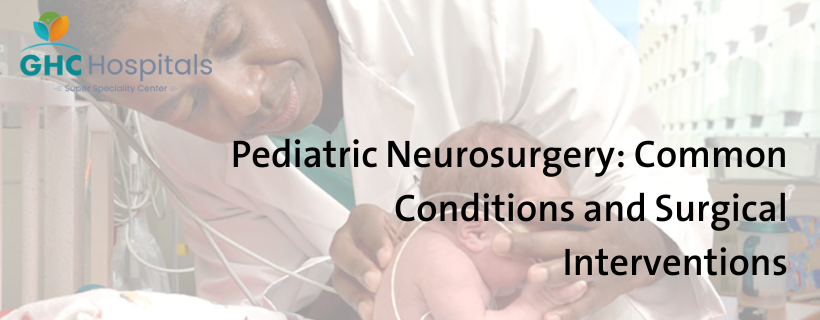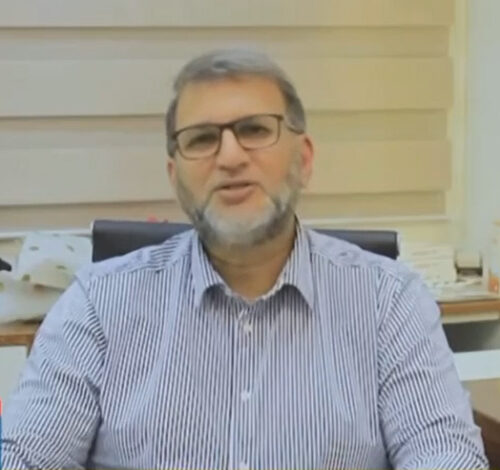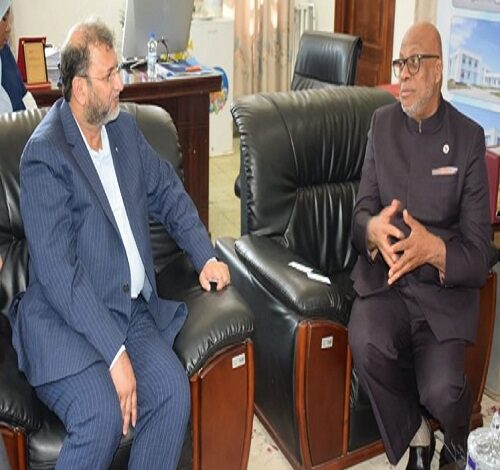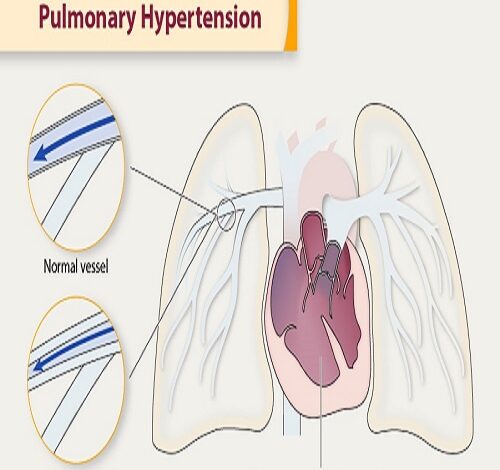Pediatric neurosurgery is a specialized field of medicine dedicated to treating neurological conditions in children. At GHC Hospitals, a leading multispecialty hospital, our expert team of pediatric neurosurgeons is committed to providing the highest level of care for young patients. This article explores some of the most common conditions treated in pediatric neurosurgery, including hydrocephalus, spina bifida, and epilepsy, as well as the surgical interventions used to address them.
Understanding Pediatric Neurosurgery
Pediatric neurosurgery involves the diagnosis and surgical treatment of neurological disorders in infants, children, and adolescents. These conditions often differ from those seen in adults and require a unique approach tailored to the delicate and developing nervous system of children. Pediatric neurosurgeons at GHC Hospitals are specially trained to handle these complex cases with the utmost care and precision.
Common Conditions in Pediatric Neurosurgery
- Hydrocephalus: Hydrocephalus is a condition characterized by an abnormal accumulation of cerebrospinal fluid (CSF) within the brain’s ventricles. This can lead to increased intracranial pressure, causing the head to enlarge and potentially leading to brain damage if left untreated.
Symptoms of Hydrocephalus:
Symptoms can vary depending on the child’s age but often include rapid head growth, bulging fontanelle (soft spot on the head), vomiting, irritability, and developmental delays.
Surgical Intervention:
The most common surgical treatment for hydrocephalus is the placement of a ventriculoperitoneal (VP) shunt. This device helps divert excess CSF from the brain to the abdomen, where it can be absorbed by the body. Another advanced option is endoscopic third ventriculostomy (ETV), a procedure that creates a new pathway for CSF to flow, reducing pressure in the brain.
-
Spina Bifida:
Spina bifida is a birth defect where the spine and spinal cord do not form properly. It is part of a group of conditions known as neural tube defects. The severity of spina bifida can range from mild to severe, depending on the size and location of the defect.
Types of Spina Bifida:
The most common types are spina bifida occulta (the mildest form), meningocele (where the protective covering of the spinal cord protrudes through the spine), and myelomeningocele (the most severe form, where both the spinal cord and its protective covering protrude).
Surgical Intervention:
Surgery for spina bifida typically involves closing the defect shortly after birth to prevent infection and further damage to the spinal cord. In some cases, prenatal surgery may be recommended to repair the defect before the baby is born, improving outcomes.
- Pediatric Epilepsy: Epilepsy is a neurological disorder characterized by recurrent, unprovoked seizures. In children, epilepsy can have various causes, including genetic factors, brain malformations, and previous brain injuries.
Symptoms of Pediatric Epilepsy:
Seizure symptoms can vary widely, ranging from brief periods of staring to full-body convulsions. Children with epilepsy may also experience developmental delays and learning difficulties.
Surgical Intervention:
When medications fail to control seizures, surgical options may be considered. One common procedure is a resection surgery, where the part of the brain responsible for seizures is removed. Another option is vagus nerve stimulation (VNS), where a device is implanted to send electrical impulses to the brain, reducing the frequency of seizures.
The Importance of Early Diagnosis and Intervention
Early diagnosis and intervention are crucial in paediatric neurosurgery. Conditions like hydrocephalus, spina bifida, and epilepsy can have significant impacts on a child’s development and quality of life if not addressed promptly. At GHC Hospitals, we emphasise the importance of regular check-ups and early screenings to detect these conditions as soon as possible.
The Role of Advanced Technology in Pediatric Neurosurgery
Advancements in medical technology have significantly improved the outcomes of paediatric neurosurgery. At GHC Hospitals, we utilise state-of-the-art imaging techniques, such as MRI and CT scans, to diagnose and plan surgeries with precision. Intraoperative monitoring and navigation systems further enhance the safety and effectiveness of surgical interventions, ensuring the best possible outcomes for our young patients.
-
Minimally Invasive Techniques:
Minimally invasive surgical techniques have revolutionised paediatric neurosurgery, allowing for smaller incisions, less pain, and faster recovery times. These techniques are particularly beneficial for children, reducing the physical and emotional stress associated with surgery.
-
Robotic-Assisted Surgery:
Robotic-assisted surgery is becoming increasingly common in paediatric neurosurgery. This technology allows for greater precision and control during complex procedures, leading to better outcomes and fewer complications.
Conclusion: Trust GHC Hospitals for Your Child’s Neurosurgical Care
Pediatric neurosurgery is a delicate and complex field that requires specialized expertise and a compassionate approach. At GHC Hospitals, we are committed to providing the highest quality of care for our young patients, using the latest technology and techniques to ensure the best possible outcomes.
If your child is facing a neurological condition, trust the experts at GHC Hospitals to guide you through the journey with care and expertise. Contact us today to learn more about our pediatric neurosurgery services and how we can help your child achieve a brighter, healthier future.





